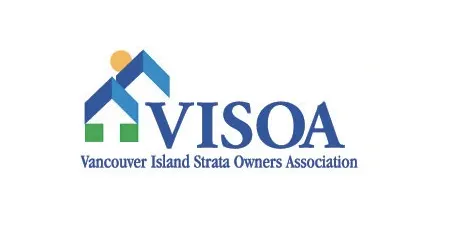
Condo life means less freedom — neighbours above, below and to the sides! But at least I can do whatever I want inside my unit. Condo bylaws only apply to our shared spaces.
Many homeowners in British Columbia (especially those in Lower Mainland high-rises) live in a strata. Many of them have learned — sometimes after moving in — that a strata functions like its own mini-city. There are lots of rules. And there can be consequences if you break them. Strata property laws help owners answer big questions like: Who makes decisions? How do we save for future repairs? Who can we complain to if we aren’t getting along? Learn your rights (and responsibilities) when living in a strata, and steps you can take to prevent problems.
What you should know
“I bought a cute townhouse in a small, four-unit complex on the east side. I was psyched to have my own front door and small yard — I forgot how much I loved gardening, having lived in a high-rise for eight years. But then I learned that this fourplex is also a 'strata.' And it has just as many rules and regulations as my last condo! It’s easier to agree on things since we’re such a small group, but I was surprised to learn how many places in BC are stratas."
– Hailey, Vancouver, BC

A strata is a specific type of ownership in BC. It isn’t the size or shape of a development that makes it a strata. Instead, it’s the legal structure. Stratas have their own provincial law, which sets the rules. The law covers things like how a building is run, what it’s legally required to do (like have insurance), and how much power the building manager has. If a development is legally created by a strata plan, it’s a strata. That’s true whether it’s a 300-unit high-rise apartment or a two-unit strata duplex.
A strata is like a company, but instead of shares, you own a unit in the building. Everything else is common property that all the owners share.
A strata can sue or be sued: think of a situation where a plumber does a bad job on the pipes in the main boiler room. The strata council (more on them later) may decide to sue the plumber on behalf of the strata.
And like most companies, a strata must be transparent with its owners. This means annual meetings where key issues are discussed, changes are debated, and leaders are elected. The strata also has to keep records on hand, which any owner can ask to review.
When you live in a standalone house, you’re the boss when it comes to decor, repairs, and landscaping (subject to municipal rules). Stratas, on the other hand, impose a structure on all owners. Every strata has its own set of bylaws — established by the original owners and shaped as needed by the current owners. The bylaws cover things like whether pets are allowed, what time of day you can make noisy repairs in your unit, and how many people you can invite to the gym.
This isn’t to say you should always avoid stratas if you value your freedom. Indeed, strata living is often the only affordable option in BC. But it’s important to recognize that having neighbours directly above, below, and to the sides does mean certain trade-offs. Learning to compromise is part of the deal.
The strata council runs your building. Among other things, it makes short- and long- term budgets, creates systems for bill-paying, arranges building insurance, and deals with owner complaints and reno requests.
The council is elected once a year by all of the owners — a mini-democracy, so to speak. The council members will meet periodically to go over a specific list of items and make sure things are on track. They may also set up sub-committees to review specific issues in depth.
Most of the time, the strata will hire a management company to take care of the day-to-day. In this case, you’ll often have a primary point of contact to email or call about issues in the building. This person will weigh the urgency of your request and bump it to the strata council as needed.
The council’s management is guided by the building’s strata bylaws. There’s a standard set of bylaws under the Strata Property Act. But stratas often add or change things. It’s often a question of style. Should our building allow pets? Smoking on balconies? Specific blinds on the windows? This means, for example, that the council isn’t “just saying” you can’t have pets in the building. The owners would have agreed upon this issue already, perhaps at an annual meeting before you became an owner.
Beneath the bylaws, we have the rules. They can’t govern the use of your unit; only bylaws can do that. They also have to be approved by the owners at the next annual meeting, otherwise they’re no longer in force. Rules are often smaller and more “administrative” than bylaws. They’re good for things that the council wants to change each year, like gym hours.
How to prevent problems
“I never had problems in my first condo. People kept to themselves. There were annual 'meetings' that each owner got invited to, but I didn’t bother. When I sold my place to move closer to my parents, that’s where strata living became irritating. So many busybodies filing 'noise complaints' or claiming that I let my friends park overnight in visitor parking. It’s not enough for me to move, but it’s annoying. I wish I’d done more due diligence before I bought this place..."
– Devin, New Westminster, BC

This will feel like homework, but it’s a smart two hour-ish time investment. Before you put in an offer on a strata, ask your real estate agent for a copy of the strata documents. Read through the board meeting minutes and, if they have one, the building’s depreciation report. You’re looking for things like:
Are there bylaws that are incompatible with your lifestyle? If you have a pet and the bylaws don’t allow pets, well, that won’t work. Or if you’re buying a unit as a fixer-upper, check out any restrictions around renovations.
What are the strata fees? Know how much you’ll have to pay per month, and see if any fee increases might be coming soon.
Are there any major repairs on the horizon? If so, you and all of the other owners may be on the hook for a one-time “special assessment” to cover costs. These can run well into the thousands of dollars.
Does the strata council deal with owner complaints regularly? If most meetings had time devoted to reviewing noise or odour complaints, or fines or other fees levied against owners, that might tell you something about how the building is run (and whether it’s a good match for you).
Has the strata council been involved in any litigation? The more court cases against its own owners, the more likely there’s a testy relationship between management and ownership. You can search online for court cases (get the full legal name of the strata, as you’ll need that to run a search).
Each year, the strata council is re-elected. if you’re interested in running, inquire with your building manager or the strata president. As a member of the board, you’ll be able to have a direct impact on how your building is run. But it’s a team sport. You’ll need to be tactful and persuasive — decisions are made collectively.
Strata councils often hire experts to advise them, especially on key repairs. But you will have a voice. You can weigh in on small issues, like upgrades to signage in elevators or hallways. Or on bigger issues, like reviewing quotes from engineering companies for a major repair job, or proposing a change to the strata bylaws about whether pets or rentals should be allowed in the building.
Being on the council is a responsibility. To be an effective strata, members have to attend meetings, come prepared (you’ll typically get an agenda in advance), and be ready to voice their opinion.
And as a council member, you’ll also have to think and act in the best interests of the whole building. People often join a council to bring forward proposals they personally think are worthwhile. And while that’s fine, you’ll have to be careful to disclose conflicts of interest and not vote when you’re too close to an issue. For example, voting for your partner’s company to carry out the building’s engineering work is a no-no. But that doesn’t prevent you from letting the council know about her services so long as you disclose that she’s your partner and you abstain from voting.
The strata, as a whole, must get its own insurance policy to cover such things as damage to the building and common areas. This is funded through owners’ strata fees. Many people get their own, additional insurance policy to cover their unit more fully. It’s important to buy the right policy, and to be aware of the strata's deductible. It’s worth doing some research here. Getting the opinion of an insurance broker can be very helpful.
It’s annoying to get an email from the building manager saying that, “Your neighbour has complained that on December 4th, at 11:14pm, you were playing music very loudly.” But there are two sides to this coin. Yes, some people have a thin skin; but you also do need to be mindful of your neighbours.
It’s all about finding a middle ground. Effective communication can make the biggest difference. We’ve got tips and tricks for dealing with strata complaints.
Also be aware that if you feel strongly that a strata council’s decision against you is unfair, you can appeal. The Civil Resolution Tribunal has jurisdiction for many (but not all) strata disputes. This online tribunal encourages a collaborative, problem-solving approach to dispute resolution, rather than the traditional courtroom model.
Who can help

Condominium Home Owners Association of BC (CHOA)
A non-profit that promotes the interests of strata property owners.

Vancouver Island Strata Owners Association
Provides education, resources and support to owners and councils on the Island.

